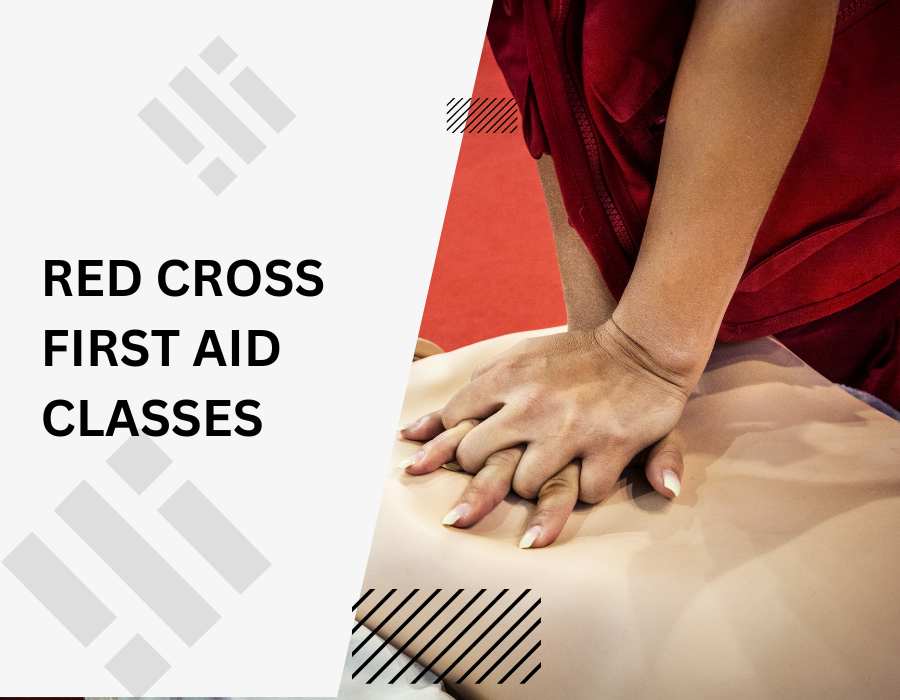Acquiring first aid and cardiopulmonary resuscitation (CPR) training is vital in emergency situations, as it can significantly impact the outcome of saving a person's life. Whether the situation involves a minor injury or a life-threatening condition, possessing the knowledge and skills to provide immediate care is crucial. First aid training enables individuals to assess situations, administer basic medical care, and stabilize patients until professional medical assistance arrives.
In contrast, CPR training focuses on teaching individuals how to perform chest compressions and rescue breaths to maintain blood circulation and oxygen supply to the brain until emergency medical services arrive. In Toronto, where accidents and medical emergencies can occur at any time, having the skills and knowledge to provide immediate care is extremely valuable. From workplace accidents to outdoor activities, possessing first aid and CPR training can instil confidence and enable individuals to respond effectively in emergency situations.
Choosing the Right First Aid and CPR Class
Reputation and Accreditation
It is essential to find a reputable training provider that offers comprehensive and up-to-date courses. The provider should be accredited by a recognized organization, such as the Canadian Red Cross or the Heart and Stroke Foundation.
Convenience and Instructor Qualifications
Individuals should also consider the convenience of the class schedule and location, as well as the qualifications of the instructors. This ensures that the training is both accessible and effective.
Customization and Cost
The specific needs and requirements of the individual or organization seeking training should also be taken into account. Some workplaces may require specialized first aid training red cross for specific industries, such as construction or healthcare. In these cases, customized courses may be necessary. Additionally, the cost of the training and any additional benefits or resources offered by the training provider should be considered.
Certification and Accreditation for First Aid and CPR Training
Upon successful completion of a first aid and CPR class, participants will receive a certification that is valid for a certain period of time. This certification serves as proof that the individual has completed the necessary training and has demonstrated competency in providing first aid and CPR. In Toronto, certifications are typically issued by recognized organizations, such as the Canadian Red Cross or the Heart and Stroke Foundation.
It's important for individuals to ensure that their certification is up-to-date and meets the requirements of their profession or organization. Some certifications may require renewal every one to three years, depending on the specific course and organization. Additionally, individuals should be aware of any additional requirements for maintaining their certification, such as completing refresher courses or continuing education.
By staying current with their certification, individuals can ensure that they are prepared to respond effectively in an emergency.
The Academy for First Aid and Safety: Course Offerings and Benefits
The Academy for First Aid and Safety is a leading provider of first aid and CPR training in Toronto, offering a wide range of courses for individuals and organizations. The Academy is accredited by the Canadian Red Cross and provides high-quality training that meets national standards. With experienced instructors and state-of-the-art facilities, the Academy offers a supportive learning environment that emphasizes hands-on practice and real-world scenarios.
The Academy for First Aid and Safety offers a variety of courses to meet the needs of different individuals and organizations. From standard first aid and CPR/AED training to specialized courses for healthcare professionals and workplace safety, the Academy provides comprehensive training that is tailored to specific needs. In addition to standard courses, the Academy also offers customized training programs for businesses, schools, and community groups.
What to Expect in First Aid and CPR Classes
First aid and cpr classes in toronto typically cover a range of topics, including basic life support techniques, injury assessment, wound care, and emergency response protocols. In these classes, individuals can expect to learn how to recognize and respond to various medical emergencies, such as heart attacks, strokes, choking, and severe bleeding. CPR classes will also cover the proper techniques for performing chest compressions and rescue breaths on adults, children, and infants.
Overall, individuals can expect to gain practical skills and knowledge that can be applied in real-life situations.
These programs can be designed to address specific risks and challenges faced by different industries or organizations. In addition to high-quality training, the Academy for First Aid and Safety offers several benefits for participants. The Academy's courses are designed to be engaging and interactive, with a focus on practical skills that can be applied in real-life situations.
Participants will have the opportunity to practice their skills on advanced equipment and receive personalized feedback from instructors. Furthermore, the Academy provides ongoing support and resources for participants to maintain their certification and stay current with best practices in first aid and CPR. In conclusion, first aid and CPR training are essential skills that can make a difference in saving lives in emergency situations.
By choosing the right training provider and completing a comprehensive course, individuals can gain the knowledge and confidence to respond effectively in a wide range of medical emergencies. With its accredited courses, experienced instructors, and supportive learning environment, The Academy for First Aid and Safety is a top choice for first aid and CPR training in Toronto. Whether it's for personal development or professional requirements, individuals can benefit from the practical skills and ongoing support offered by The Academy for First Aid and Safety.





Comments